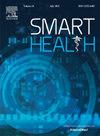Explainable AI and transformer models: Unraveling the nutritional influences on Alzheimer's disease mortality
Abstract
This pioneering study introduces the use of transformer-based machine learning models and explainable AI approaches to explore the impact of nutrition on Alzheimer's disease (AD) mortality. Using data from the Third National Health and Nutrition Examination Survey (Nhanes iii 1988 to 1994) and the NHANES III Mortality-Linked File (2019) databases, we investigate the intricate relationship between various nutritional factors and AD mortality. Our approach features a novel application of transformer models, which are then benchmarked against established methods like random forests and support vector machines. This comparison not only underscores the strengths of transformer models in handling complex medical datasets but also highlights their potential for providing deeper insights into disease progression. Key findings, such as the significant roles of Platelet distribution width in AD mortality in transformer and Serum Vitamin B12 in random forest, are enhanced by the use of Explainable Artificial Intelligence (XAI), particularly the Shapley Additive Explanations (SHAP) and the integrated gradient methods. This study serves as a vital step forward in applying advanced AI techniques to medical research, offering new perspectives in understanding and combating Alzheimer's Disease.

 求助内容:
求助内容: 应助结果提醒方式:
应助结果提醒方式:


